The Hardest Thing You'll Ever Do
If you’ve ever been to a Leave Nothing Unsaid workshop, heard me speak or used my workbook, you’ve heard me say that a letter of affirmation is not the place to ask for or extend forgiveness to the letter recipient.
Why am I so adamant about that? Because if you write about an emotional wound, the person reading the letter will circle back and focus on that injury and not the positive, affirming things in the letter. It’s human nature. If someone were to tell you several great things about your character but point out one character flaw, what would you obsess about? In all probability, the negative, not the positive.
Does that mean that forgiveness isn’t important? Not in the least. Forgiving those who have hurt us, in fact forgiving each hurtful offense, is vital to free us to love and affirm others the way that God intends.
At Easter, as we focus on God’s willingness to forgive us for our sins because of the suffering and death of His innocent son, our gratitude swells at this free and wonderful gift offered to us. We love and embrace being forgiven as we celebrate Easter.
But still, it is so difficult to forgive those who have hurt us. “Forgive THEM? You MUST be kidding!!! After what they did to me?” We delude ourselves into thinking that withholding forgiveness will cause the offending person to suffer.
In reality, being unforgiving hurts us and keeps us from fully loving others the way that God intends. It’s a form of emotional bondage that we often can’t see. Have you ever heard the expression “bitterness destroys the vessel that contains it?” Think about negative, angry people that you know. At the root, isn’t there some form of harm or injury that they have nursed until it has poisoned their whole outlook on life? And negative, angry people generally don’t have much interest or capacity for affirming and encouraging others.
Recently, I had the privilege of meeting and praying with Toni Hebel who leads a worldwide ministry with her husband called Forgiving Forward. She shared their powerful approach to finding the freedom of forgiveness. (Their book Forgiving Forward: Unleashing the Forgiveness Revolution provides more details, and the Kindle download is FREE on Amazon this Easter weekend!) This work is most effective when done aloud and with a trusted friend or mentor. (And I recommend having a large box of Kleenex nearby.)
This is the suggested protocol for forgiving others:
- Thank God for forgiving you.
- Ask God “Who do I need to forgive and for what?”
- Repent of your own sin of unforgiveness.(Yes, unforgiveness really is a sin.)
- Forgive each offense from your heart. (And, yes, this might take a while.)
- “Lord, I choose to forgive __________, from my heart, for __________.” Continue to forgive each offense or hurt that comes to mind.
- “Lord, is there anything else I need to forgive __________ for?” If so, return to a.
- “Before God, I declare _________ is no longer in my debt.”
- Seal it with a blessing. Ask God to bless the offending party and look for ways to bless them when possible. (This might seem like the hardest part, but once you’ve forgiven all the hurts and offenses, it’s really not!)
- Commit to “not remember” the offenses. When the memory comes:
- Say “I specifically remember forgiving that.”
- Praise God for the freedom forgiveness has brought you.
- Bless the person you forgave – again.
- Pray for reconciliation.
- Make pre-forgiveness a lifestyle. Choose daily not to receive an offense but take each relational debt and transfer it immediately to the cross. The blood of Jesus covers all sins including the ones committed against you and me.
- As time passes, other hurts or people might come to mind. When those painful memories bubble up, just go back through the same protocols and intentionally choose to forgive each offense.
Going through this intentional work of forgiveness will provide you with a great sense of freedom and brighten your perspective on life. It certainly has for me. Is it easy? Not at all. In fact, it might be the hardest thing you’ll ever do. But you will find yourself more outwardly focused and able to love, encourage and affirm others with new depth and sincerity.
What if you are the one who has inflicted the hurt? Is it enough to confess your sins to God and ask for His forgiveness? Sometimes, that’s your only option. The one you’ve injured might be deceased or have moved across the world. But in the Sermon on the Mount, Jesus said: “If you enter your place of worship and, about to make an offering, you suddenly remember a grudge a friend has against you, abandon your offering, leave immediately, go to this friend and make things right. Then and only then, come back and work things out with God.” (Matthew 5:23-24, The Message)
If possible, ask for forgiveness in person. Don’t make excuses, justify or blame another for your behavior. (Remember what they say about “everything before the ‘but’ is baloney.”) Whether or not the other person chooses to forgive you, you’ve done what Jesus commanded you to do. And you, too, will experience a great sense of freedom.
This Easter weekend, may you experience the true freedom that forgiveness brings. And may you begin to love and affirm others (and write letters!) like never before!
Happy Easter! He is Risen!
Sign up for our newsletter
Receive a regular dose of encouragement by signing up for the Leave Nothing Unsaid / Jody Noland newsletter!
Join our Mailing List
2022 All rights reserved.


